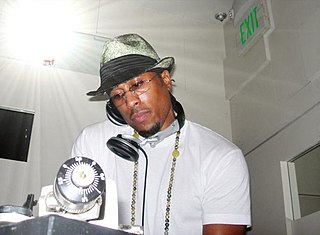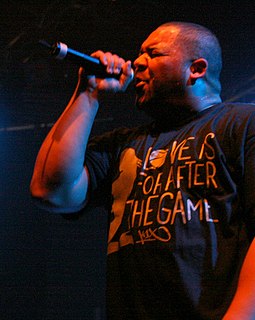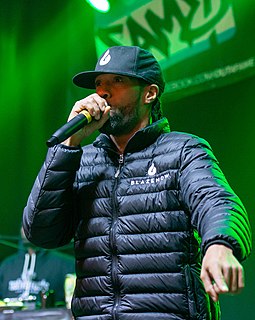A Quote by Ali Shaheed Muhammad
Hip-hop has had this history where the predecessor just is so harsh and not nice to the next coming generation that it creates this separation and this gap.
Quote Topics
Related Quotes
That's why this generation is the least racist generation ever. You see it all the time. Go to any club. People are intermingling, hanging out, having fun, enjoying the same music. Hip-hop is not just in the Bronx anymore. It's worldwide. Everywhere you go, people are listening to hip-hop and partying together. Hip-hop has done that.
Somewhere down the line, the evil ones stole the legacy of hip hop and flipped it to a corporate type of hip hop. They decided to tell everybody 'Well, this is what hip hop is,' instead of coming back to the pioneers and getting the true definition of what hip hop is and what it was and what we been pushing for all these years.
In this time, we incorporate money and media, and it's split up like apartheid, where when you say "hip-hop," you think just rap records. People might have forgot about all the other elements in hip-hop. Now we're back out there again, trying to get people back to the fifth element, the knowledge. To know to respect the whole culture, especially to you radio stations that claim to be hip-hop and you're not, because if you was a hip-hop radio station, why do you just play one aspect of hip-hop and rap, which is gangsta rap?
I agree that all kids of all colors love hip-hop. My point in writing the book was to raise questions about the ways the hip-hop generation and the millennium generation, both who have lived their entire lives in post-segregation America, are processing race in radically different ways than any generation of Americans. I think they have a lot to tell us as a country about ways of addressing race matters.



































